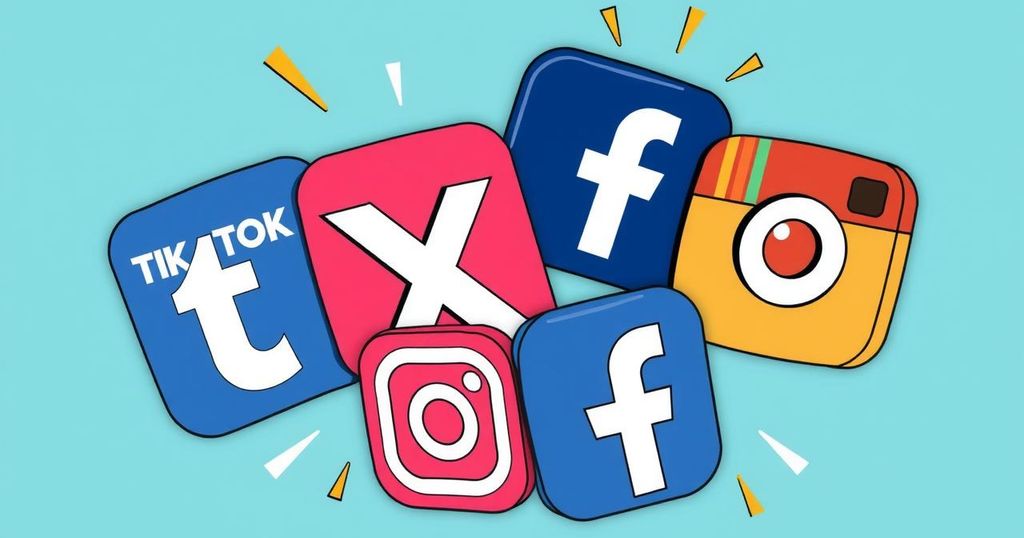How Americans Navigate Politics on TikTok, X, Facebook and Instagram

A recent Pew Research Center study sheds light on how Americans engage with politics on social media, showing strong political engagement on X but less on TikTok, Instagram, and Facebook. Users primarily turn to these platforms for entertainment and social connections rather than political content. Concerns about democracy, free speech, and harassment are also prevalent across all platforms, highlighting complex user experiences.
Recent research explores how Americans engage with politics on social media platforms, including TikTok, X (formerly Twitter), Facebook, and Instagram. Conducted by the Pew Research Center, the study analysed data from over 10,000 adult internet users between March 18-24, 2024, aiming to grasp users’ experiences, beliefs, and the broader impact on democracy.
The results reveal that social media plays a significant role in shaping political conversations. X users stand out, with 59% using the platform specifically for keeping up with political issues, compared to just 36% of TikTok users. Facebook and Instagram lag in this regard, with only 26% of users citing political content as a reason for their engagement.
Interestingly, social media use often revolves around entertainment and personal connections. Nearly all TikTok users (95%) find it entertaining, while Facebook and Instagram users predominantly connect with friends and family, although political engagement varies across platforms. For instance, 74% of X users report seeing political content, contrasted with 52% on Facebook and only 36% on Instagram.
The impact of social media on democracy remains contentious. While nearly four-in-ten X users view it as beneficial for democracy, a growing segment of Democratic users are more sceptical, thinking it harms democratic processes. Conversely, Republican users increasingly regard X positively — their perspectives have shifted dramatically over recent years.
On Facebook, Instagram, and TikTok, a majority of users feel these platforms have little to no impact on democracy, although users generally view TikTok and Instagram as more positive compared to Facebook. Many users do encounter political content; however, there’s a notable gap between what users see versus what they share, particularly on X, where only 14% of users post political content.
Harassment and free speech also come into play. Most users across platforms feel they can express political views freely, although scepticism exists among Republican users on Facebook. Harassment appears to be a pressing issue as well; many Facebook users regard it as a significant problem, and this sentiment is echoed across the other platforms.
In summary, the landscape of political engagement on social media is multifaceted, revealing a blend of user motivations, experiences, and the unique ways each platform influences their political landscape.
Original Source: www.pewresearch.org







